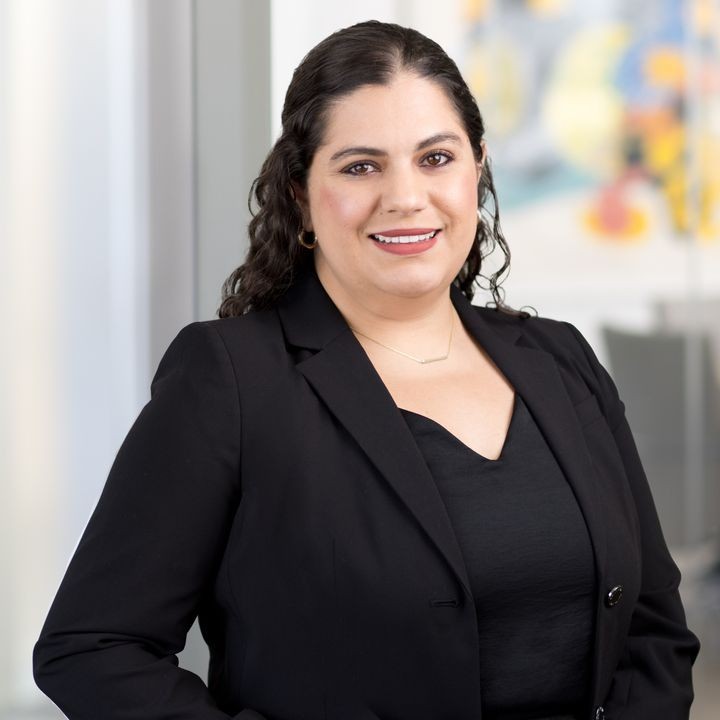D.C. Circuit Rejects Copyrightability of Artwork Created Autonomously by AI
Client Alert | 3 min read | 04.01.25
In a unanimous opinion issued by the D.C. Circuit on March 18, 2025, the Court of Appeals affirmed denial of Dr. Stephen Thaler’s application to register a copyright protection for a work created by his generative artificial intelligence system, holding that the Copyright Act requires human authorship.
Dr. Thaler’s AI System and “A Recent Entrance to Paradise”
Dr. Thaler created a generative AI system named “Creativity Machine.” Creativity Machine then autonomously created an artwork, which Thaler titled “A Recent Entrance to Paradise.” Once Creativity Machine got to work, no human was involved. In 2019, Thaler applied for copyright registration from the US Copyright Office. In his application, Thaler only listed Creativity Machine as the author, and listed himself as the owner. Consistent with the long-standing requirement that copyright protection requires human authorship, the Copyright Office denied his application.
Prior Denials of Thaler’s Application
Thaler subsequently sought reconsideration by both the Registration Program and the Review Board. Thaler’s principal arguments were that traditional human authorship requirements are unconstitutional, unsupported by statute, and archaic from a policy perspective, in light of the rapidly evolving developments in AI. Both the Registration Program and Review Board denied his motion for reconsideration. Because Thaler had only listed Creativity Machine as the author, the Review Board accepted Thaler’s representation that the photograph was created autonomously by a generative AI system without any creative contribution from a human actor.
Thaler then sought review of the denial of his application in district court. Thaler v. Perlmutter et al, Civ. No. 1:22-cv-1564 (D.D.C 2022). The district court ruled against Thaler, concluding that “[h]uman authorship is a bedrock requirement of copyright.” Thaler, 687 F. Supp. 3d 140, 146 (D.D.C 2023).
D.C. Circuit Affirms Denial of Thaler’s Application
On appeal, the D.C. Circuit concluded that the Copyright Office had “appropriately denied Dr. Thaler’s application” because “A Recent Entrance to Paradise’s” sole author was Thaler’s Creativity Machine, a computer system and not a human being. Opinion at 9.
Writing for the Court, Circuit Judge Millett rejected Thaler’s statutory interpretation arguments. Instead, the Court reasoned that although the Copyright Act does not define the word “author,” standard statutory interpretation tools make clear that the only reasonable reading of the word “author” is to conclude that the Copyright Act is referring to human authors, not machines. The Court concluded that adopting Thaler’s proposed interpretation that “author” includes machine would render the use of “author” in other parts of the Copyright Act nonsensical, as the Act would refer to a “machine’s children” or a “machine’s nationality.” Likewise, the Court found support for the statutory human authorship requirement from the Copyright Office’s own longstanding rule, formally adopted in 1973.
Next, the Court rejected Thaler’s argument that the human authorship requirement “wrongly prevents” copyright law from protecting works made with artificial intelligence. Opinion at 18. Judge Millett reasoned that the human authorship requirement simply requires that the author of the work be a human being, it does not prohibit copyright protection of works where the human author uses or is assisted by artificial intelligence. Id. Indeed, the Court acknowledged that the Copyright Office has allowed registrations of works where the human author is aided by artificial intelligence. Id. at 19. This aligns with the recently issued guidance from the Copyright Office that addresses and clarifies generative AI copyrightability. The D.C. Circuit reasoned that whether human contribution to an AI-generated output is sufficient to constitute authorship would be analyzed on a case-by-case basis, but noted such analysis had no applicability to Thaler’s case, where the only author listed was his Creativity Machine, and there was no human involvement.
Finally, in rejecting Thaler’s other arguments, the Court concluded if the human authorship requirement prevents the creation of original works in the future, that would fall to Congress to address.
Key Takeaway and Looking Forward
- The Court reaffirmed that the Copyright Act requires human authorship, and that any other interpretation renders other portions of the Act nonsensical.
- Recent developments and guidance by the Copyright Office confirm that a work created solely by a machine is not copyrightable.
- Whether and how the laws may change in the future to address the interplay between new technologies and copyright protection is a question for Congress, not the courts.
Thaler has not yet filed an appeal to the Supreme Court of the United States. If he does, Crowell will continue to monitor and report on new developments.
Contacts
Insights
Client Alert | 4 min read | 03.04.26
Sixth Circuit Finds EFAA Arbitration Bar to Entire Case — Not Just Sexual Harassment Claims
The United States Court of Appeals for the Sixth Circuit held, in an issue of first impression for that court, that the Ending Forced Arbitration of Sexual Assault and Sexual Harassment Act of 2021 (EFAA) renders an employer’s pre-dispute arbitration agreement unenforceable as to a plaintiff's entire lawsuit, whenever the lawsuit includes a viable sexual harassment claim.
Client Alert | 3 min read | 03.02.26
Client Alert | 4 min read | 03.02.26
Client Alert | 3 min read | 02.27.26




